May 13, 2023
Shaun Arora
Shaun Arora is a seasoned professional with a strong background in marketing and business development. With over 15 years of experience, Shaun has developed a deep understanding of consumer behavior and market trends. He has a proven track record of driving business growth through strategic marketing initiatives and innovative campaigns. Shaun is skilled in building and maintaining relationships with clients and partners, and he has a passion for developing creative solutions to complex challenges. Shaun’s expertise and leadership make him a valuable asset to any organization looking to expand its market presence and drive revenue growth.
One Line Life Lessons from Shaun
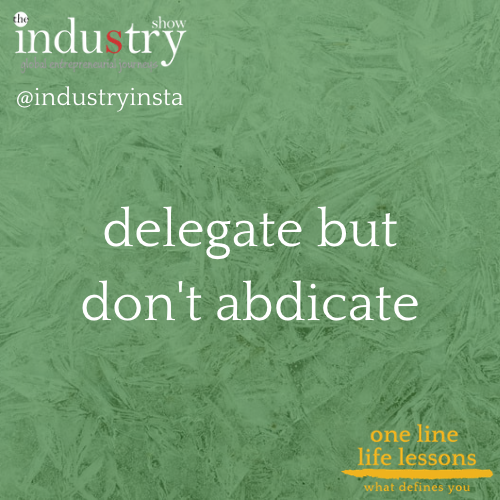
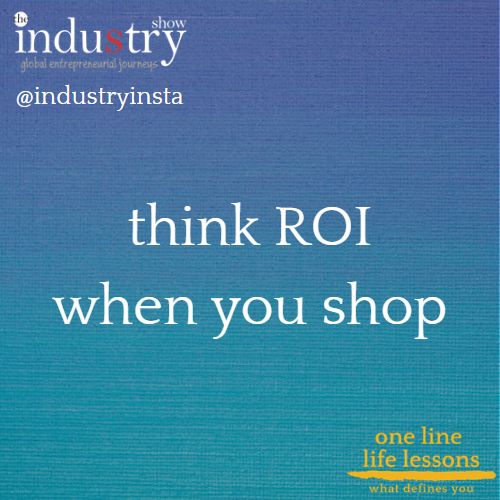
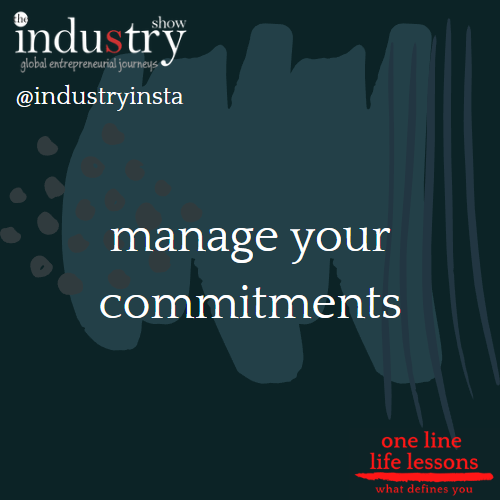
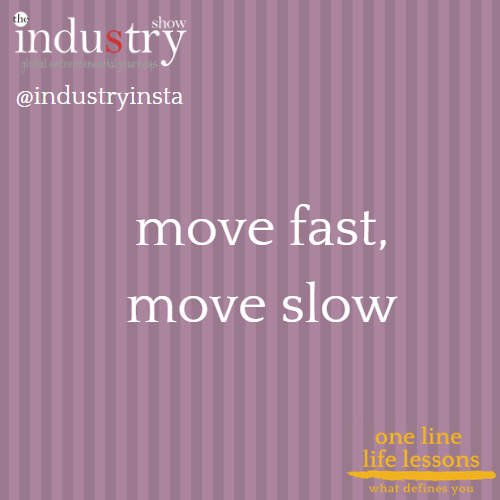
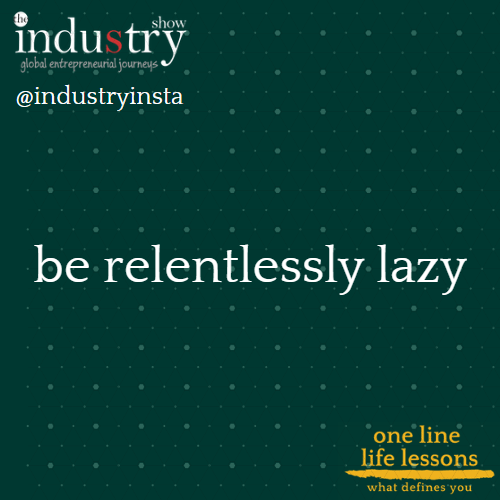
Episode Highlights
- 0:00 – Introduction to Shaun Arora, founder of My Three Rocks, a startup accelerator
- 1:20 – Transition from scaling companies to assisting startups
- 3:45 – Focus on implementing processes and systems, mentoring founders
- 5:10 – Temporary role as COO or CSO for startups
- 7:00 – Coaching and working with companies making a global impact
- 9:15 – Emphasis on helping companies scale up and deal with challenges in clean tech and climate tech space
- 11:30 – Discussion of career experiences and life lessons
- 13:45 – Company strategies and the dilemma of cutting resources or investing in growth
- 16:00 – Conclusion with expressions of gratitude and well wishes
Show Transcript
Transcript - Full Episode
Nitin Bajaj
Welcome to the industry show. I’m your host, Nitin Bajaj, and joining me today is Shaun Arora. Shaun, welcome on the show.
Shaun Arora
Yeah. Thanks. Nice to be here.
Nitin Bajaj
Great to have you here. Let’s start with the simple question. Who is Shaun?
Shaun Arora
Well, I’m I’m I’m Angelino, born and raised in LA. Although nowadays, I’m fairly nomadic, bouncing between the East Coast and West Coast, Canada, US. I am a father of 3 wonderful children, and I love being in the water, in the oceans. After the oceans, I love to eat anything with hot sauce, and I also roast coffee. I’ve been a little bit of a coffee nerd for a number of years. A number of years ago, I scaled a company. I was part of the leadership team that built up the company, and the bigger it got, the, the less fun I started to have. I really enjoy working with start ups. I started a start up accelerator, My Three Rocks, and nowadays, almost all my work is with start ups. And so that’s really where I put my Shaun, just helping amazing founders, especially product led founders, build a big thing, achieve their visions.
Nitin Bajaj
Wonderful. I love that you love the ocean and that you live in mostly in LA where you get to enjoy that passion. And then, of course, there’s lots of coffee to choose from. And when you travel around, you can tap into that passion, bring it home. So you mentioned this, but I would love to dig a little deeper on this. Tell us what do you do for a living? The startups that you help, the founders that you help. Tell us a little more about that.
Shaun Arora
Yeah. I work with some incredible founders, and even the best of them get stuck on a question and problem. Maybe they drove the business really hard, hit milestones, and over leveraged their strengths. And there are few things that they defer, things like HR or operations that they see the, the mistakes piling up, and they’re like, you know what? Like, yeah, that’s a little bit of annoying thing. It’s not a a big issue right now. It’s gonna be a big issue, but I have all these other fires to put out. And I like to jump into those type of situations and say, you know what? Like, I’ll put in my time and energy to fight the fires that that you don’t wanna fight. So I oftentimes jump in as a chief operating officer, chief strategy officer, just, whack a mole on these different issues. I have no intention of sticking around the company, so I try to do my best to put processes and systems in place and then hire a person who will take over. And that’s a really fun part of the job, just being that that, liaison between the the chaos and the the order and helping to get that accomplished to that next point. And then more recently, I’ve found that a lot of the clients I work with don’t really need me to do a lot of the, the dirty work. They don’t need me to get into the the code or anything like that. They just need me to say, yeah. Like, other people are going through the same situation. It’s hard that you could do it. And so I’ve been transition away from, being hands on to being a coach instead of giving the answers, asking the questions instead of, doing the design work, doing the framework. So that’s been really rewarding. I’ve been coaching for about 3 years now.
Nitin Bajaj
Amazing. And I’m sure you have many a story success story and also lessons that you have seen and gathered and, you know, shared with others and would love to hear more here in a few minutes. I’m curious to know why people do what they do. Right? And especially when you have access and experience and you could have chosen to do so many other things, why do this instead?
Shaun Arora
Well, for 1, I get to work with amazing founders. These people are brilliant, and their companies are changing the world. And so if I could have a small part of helping them and also be in a room when light bulbs go off, it’s just really exciting. About 2 years ago, I was diagnosed with autism, and I, at first was like, okay. That’s kinda weird. Like, how are people gonna see it? But what I realized is that it’s kind of a gift that I’m able to see things that other people aren’t able to see. I’m able to see around corners, options. It’s kinda like a superpower, because when I jump into teams, I’m asking questions. They’re like, wait. Why are you asking this question? And all of a sudden, I see these different dots and problems, and I see a pathway, and, founders really like that I’m bringing a diverse point of view to to the table. And it’s also just a nice way to have impact. When I was building my own company, I was impacted one company, and now I’m able to have impact across a portfolio of companies.
Nitin Bajaj
So true. I love that. You know, not just that diversity, but also that experience that you bring in. And as you rightly said, you know, allowing the founders to focus on the the critical and crucial things where they can add the most value because that’s where they have given most of their thought, and they’re able to focus on those things. And you can come in and help them elevate the function, the processes that they really need to have that snowball effect. What if if you could kind of bring this home for us is, you would say the impact of the work you do, whether it’s in the size, scale, of the operations, or just even going in and saying, you know, this is what I’m able to help drive for the companies you work with.
Shaun Arora
Well, you said something interesting about, the businesses and the the challenge that they have, and all businesses have challenges. Let’s say they scale up. Jeff Bezos calls us the rule of of 3, that every time his business tripled, something new would break because you’re just so focused on on doing whatever it is that you’re doing and doing what’s working that these other things aren’t really getting enough attention until they really start screaming for attention. I love working though with companies that are around 10 people up until maybe 200 people. Mhmm. And I do, the CEO work for 2 to 3 of those at a time, and then I coach up to 10 companies at a time.
Nitin Bajaj
Love that. And I do wanna mention this. Right behind you is this amazing Wester board that, you were kind enough to put the name of the show on, and I love it. I just saw it. I super love what it does and how it’s retro, but it’s also super hip. So those are the kind of companies you get to work with, and that is super cool.
Shaun Arora
Yeah. Thank you.
Nitin Bajaj
I would love to hear from you amongst this canvas of companies and opportunities that you get to explore and work with. What would you say is the most exciting opportunity of those all?
Shaun Arora
Well, right now, it’s kind of a weird time in the startup world. Everyone’s saying, oh, it’s the death of of startups, it’s death of, small banks and who are starting to get funding from, and the big banks are gonna wanna see 3 years of of returns. And I I don’t see it that way. I think that this is a great time to be building businesses. There’s lots of problems to be solved. There was just that report that came out on Monday. Not sure when this is going out, but today, it’s 1st week of spring, and we just learned that people are saying maybe there’s only 10 years left before some of the climate issues we’re talking about really become prescient. And it’s been amazing to work with a lot of companies in the clean tech space and in the climate tech space, working on new types of batteries, working to decarbonize our our our modes of transportation, our modes of manufacturing. So it’s great to work with amazing founders, but also magical when they’re trying to solve some of these major problems that we’re we’re dealing with right now.
Nitin Bajaj
Love that. Again, a huge canvas that you get to pick from but also make an impact in. So if you look back and, through your career, through the different, phases you’ve been through, I would love for you to share two examples. 1, that really blew your own expectations and became a success beyond what you had expected. And on the other end, something that did not work out was a failure and became a lesson.
Shaun Arora
Yeah. So, they’re both very much linked. So I was part of a leadership team in a hybrid company, and we built I had a chance to build many of the departments, bring on the the leaders for those departments as we kept on scaling, and I would talk about tripling. We went 40 x in a short time period. It was really rewarding to basically get in and start to build the foundation for the company, build the operating system of this company, and the operating system, the tools that we put in place, the hires we put in place are still there 10 years later. And I love day to day because I just stopped having fun building those things, become became much bigger. They also we did a mergers acquisition deal, and I really wanted to get this deal done. And the deal terms just kept on changing. And when you start thinking about m and a activity, you think about synergies, and you say, you know what? This is the probability that this will be the outcome. And as a deal number changes, the probability got smaller and smaller that this was a good deal, but I still wanna get the deal done. I still wanted I still saw that, like, I would squint and say, you know what? There’s that small chance. Maybe it’s a a 15% chance. Maybe it’s a 10% chance. But if we do everything right, if we really try hard, then we can make it work, and I will never do that again. There’s a reason why a lot of banks are so conservative, and they stick around. It’s because they are playing by a different playbook. They do have a large margin of error. And when you’re an entrepreneur, it’s easy to say, hey. I took a risk last time and it paid off, and so I’m gonna take another risk. And nowadays, when I am involved in these type of decisions, what I try to do is put a Red Hat team in place on day 1, really like not having someone have to raise their hand and say, I think this is a bad idea, but really put that into the the infrastructure of the decision making process and say, okay. Your job is to find everything wrong, to be that the the other the counterpoint just to to check our own biases.
Nitin Bajaj
I completely agree with that that recency bias, and there are so many other biases at play. And the great thing about that is having been through that experience yourself once. Now you’re able to provide that benefit to the companies that you work with now, so they don’t make that same mistake. John, I would love to transition into my favorite part of the show. We call it the one line life lessons, and we’d love to have you share some of your life lessons with us.
Shaun Arora
Yeah. Sure. So one that’s, that I was just using a few, few minutes ago was delegate on Abiquate. Mhmm. I was working with this founder, and she was trying to hire someone, and she was hiring for y intercept. This person had great skills and experience, and she said, hey. You know what? I think he could take over this this role. And I’m like, he probably could, but at the end of the day, this is your company. You could abdicate the entire department to this person or you could delegate. And oftentimes when you’re building a company, especially when you’re only 20, 30 people, bringing on a person like that can really change the culture of the business. And so it’s really important to delegate, but not abdicate responsibilities when you make senior hires. Another one of my sayings is to be relentlessly lazy. Now most people think of being lazy. You’re not busy being lazy, but I love the idea that, you’re looking at the way that the world’s working, and you think there’s gotta be an easier way. How can I be lazier here? And so is that that mindset of, I was looking for solutions. I was looking for ways to improve, against the status quo. I I just love that, and I’m attracted to people who think that way. Another one I have is moving fast, moving slow. I think I might have borrowed that from Jim Collins or someone like that, but, for me, there’s the the slow movement of planning execution that once you do that, it’s like on the Gantt chart, you have that little diamond. Yes. No. Okay. You hit that. Once it’s a yes, then just move as fast as possible. Exactly. Yeah. You’ve experienced this too, I’m sure. They really spend the time moving slowly. You don’t want to move fast and then realize that you didn’t move slow enough before. You didn’t think things through. You didn’t get enough buy in. There’s this, tool I’ve been using a lot we’ve recently called gradients of agreement, where in those those meetings, you basically say, okay. How strongly do you agree with this? Are you, I really wanna do this, or, like, you know, I’m okay doing this, and I’ll just, like, let you guys do it. Or I really have a visceral issue with us moving forward, and I’m gonna block this. And I’m gonna be the the person who stops us from doing this. And getting all that out in the open really allows us to figure out, like, what is the best way to move fast. So move slow to move fast. And then another one I have is commitments are kindness, not a trap. A lot of times, you ask someone, hey. When are you gonna be able to get that done? And people feel like they’re on their heels. Well, I don’t know. It’s like the just give me a date. Like, you could change the date. I remember in college, I would, tell a teacher, hey. I’m gonna get this thing in in 3 days late. It’s like, not a problem. Like, alright. Great. It’s like but if you didn’t tell me, it would have been a problem. You would have got a f. I’m like, oh, okay. So I learned really quickly just to, like, throw it out there. Even if you’re late, that’s that’s not a problem as long as you communicate. Just manage your commitments. And then another thing that I’ve learned just from building businesses is think ROI when you shop. So a lot of businesses are built around budgets, and what I find is, especially in the government sec sector, if you have a budget, you’re gonna spend it. But if you start thinking about ROI, then you can start to spend less in the budget or even more than the budget and really figure out, okay. Is this a good use of our limited resources? So I love, I love thinking ROI when you when you shop, when you make decisions. So, yeah, I think that was what? 4, 5, 6? Did I get it?
Nitin Bajaj
I wasn’t counting. I was just thinking as you were saying those things, especially the one with the ROI. I think it’s so relevant in, today’s times when you have to be as as our resources are getting constrained, we really need to be mindful of where we put our best foot forward and then double down on it.
Shaun Arora
Yeah. Especially in the startup world, you see a lot of teams are saying, you know what? Like, how do we extend our runway? We have to make some cuts. Do we do we cut teams? Do we cut resources? How do we make sure that we’re making the right investment? And some companies say, I’m gonna invest in growth. It’s not gonna be generating revenue today, but it’s gonna generate long term. Other companies say, I’m gonna invest in in operations and systems and process because it’s gonna help me cut costs. So there’s different ways to think about it. There’s there’s no right answers that I find, ROI. A lot of MBAs like to use NPV. They’re just a basic ROI thinking is is really helpful.
Nitin Bajaj
So true. Shaun, thank you for taking the time to be with us to share your journey and your story and your life lessons. We really appreciate it. Kudos again on making this journey for others really successful and, for being you and and doing what you do. Really appreciate it and continued best wishes for many more successes for you to come.
Shaun Arora
Thank you, Nitin.



